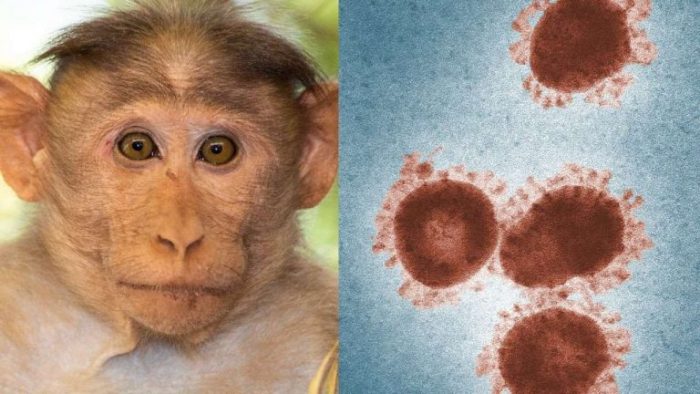Smithsonian is assessing the risk of Monkeypox to staff and live collections
The United States recently declared Monkeypox a public health emergency, which assists states and local jurisdictions in accessing resources to help battle the disease – including increased vaccine availability. Smithsonian Occupational Health Services and veterinarians at the National Zoo are closely monitoring the outbreak and are assessing risk to employees and live collections.

Transmission primarily occurs via skin-to-skin contact with open sores, mucus membranes, or body fluids. It can also be transmitted via shared objects and items used by someone with symptoms. Over 90% of the cases in the United States report having close, sustained, direct physical contact with people who have symptomatic cases of Monkeypox. The most important protective behavior is to avoid skin-to-skin contact, cuddling, kissing, or having sex with someone who has an active Monkeypox rash.
While performing normal workplace activities, the risk of transmitting or catching Monkeypox is low. Our standard cleaning methods combined with frequent handwashing or hand sanitizer use are effective for preventing spread of the illness in the workplace. For anyone who is concerned about direct physical contact with members of the public or other susceptible species, the voluntary use of gloves and wearing long sleeves and pants are recommended.
It is important to note that several symptoms of Monkeypox are also symptoms of COVID, the common cold, and the flu. Please continue to monitor your health daily and if you feel unwell, stay home until you confirm your illness and/or speak with your primary care provider.
Because Monkeypox does not present a workplace hazard, OHS will not track cases or oversee quarantine and isolation protocols. However, anyone who may be exposed to Monkeypox or who develops symptoms is strongly encouraged to speak with their primary care provider and follow CDC monitoring recommendations and/or isolation recommendations.
In keeping with the CDC’s strategy to prevent transmission, employees who develop symptoms are highly encouraged to stay home. Employees who contract monkeypox should use sick or other personal leave, or, if they feel well enough, may telework. If, during the isolation period, an employee becomes symptomatic and is unable to telework, the employee must follow any existing guidance for using sick or other leave to cover the time during which they are sick.
Vaccination is available through public health departments for those who are at higher risk or have been exposed to Monkeypox. If you are at increased risk and have not been vaccinated in the last three years, consult your local health department to determine if vaccination is right for you.
- DC Department of Health **DC recently expanded access to vaccines, to include anyone who works in DC, see this notice for more information
- NYC Department of Health
- Maryland Department of Health
- Virginia Department of Health
- Massachusetts Department of Public Health
- Pima County Arizona Health Department
- Hawaii Department of Health
If you have questions or concerns about Monkeypox in the workplace, please contact OHS at 202-633-WELL (9355) to speak with one of our nurses.
Posted: 18 August 2022
- Categories:




